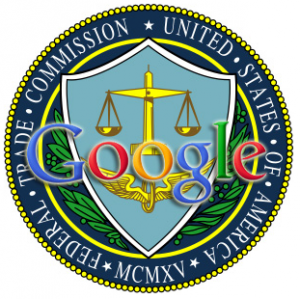Curtain Rises On Act 3 Of Google Antitrust Drama As Larry Page Meets With FTC
Google CEO Larry Page met with representatives of the US Federal Trade Commission (FTC) yesterday, according to a Bloomberg report, as the company engages in antitrust-settlement talks to avert potential litigation. The article also says that formal settlement discussions have been going on for about a week. The Bloomberg piece also reports that the FTC “has […]

The Bloomberg piece also reports that the FTC “has told Google it won’t accept a resolution short of a consent decree.” However Google doesn’t want this outcome apparently because of the ongoing enforcement authority it would grant the agency.
Neither Google nor the FTC truly want to litigate. FTC staffers have essentially been leaking information — such as the majority of FTC commissioners want to bring a formal case — in an effort to apply more pressure and get Google to make concessions.
There are reportedly a number of issues being discussed in the settlement negotiations, from the improper use of patents to exclusive advertising agreements and appropriation of third party content. One issue that appears to have faded somewhat is the notion of “search bias”: Google favoring its “own results” over third party services.
This is the principal claim of many Google opponents, such as FairSearch.org.
Google contends that it’s merely delivering a better search experience for consumers and that it doesn’t have “distinct products.” In other words, Google Maps is part of Google not a “vertical.” Rivals contend that Google’s “verticals” (e.g., Shopping, Travel) are forcing out their sites (pushing them “further down the page”) as part of a conspiracy of sorts to get them to buy ads for visibility.
The FTC’s overall legal case is by no means a “slam dunk.” Thus the agency probably doesn’t want to expose itself to a resource intensive, high-profile case only to lose down the line. Google takes some risks too if it fails to settle and is compelled to defend a formal antitrust action, not the least of which is considerable damage to its public image. Thus both sides have incentives to settle.
I assume that a settlement will happen, though the FTC may need to file suit first. The open question in my mind is what will be included and what will FairSearch and other Google critics do when their remedial wish lists are largely disappointed?
Opinions expressed in this article are those of the guest author and not necessarily Search Engine Land. Staff authors are listed here.
Related stories